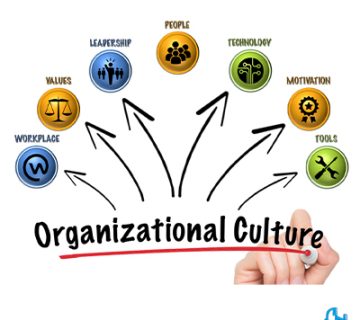Customers and employees need your empathy in the Corona crisis
When a crisis like the Corona crisis occurs, it is your company’s actions that show people whether your relationship with them is real and honest or not.
In a number of countries, the corona crisis very slowly became a serious challenge, then it affected everything at once. Although the Corona crisis as a created challenge evokes the same characteristics for us with regard to previous problems and challenges, it is still considered a unique crisis. In facing this challenge, we have to adopt different solutions and approaches that have never occurred to us before, however, we can quickly adapt to the challenge due to our previous experiences.
Methods of facing the corona crisis
When facing a crisis like the Corona crisis, we often use the following methods to help organize actions over different time horizons.
- Immediate actions: Necessary measures for the survival of businesses, stabilization and reassuring the stakeholders.
- Anticipated actions: anticipating customer, employee and business needs.
- Investing in relationships: Investing in relationships to create future value.
- Strategic investments: creating the ability to endure and permanence.
And since we are in a new situation in the Corona crisis and everything is changing rapidly, we need to act urgently to improve our customer relations and marketing decisions.
But how should we behave with this new reality?
Organizations’ reaction to the social and economic losses caused by the Corona crisis in front of most consumers and employees should be empathetic and all small and large reactions should be under the microscope. Most of them experience different stages of emotions that have arisen due to loss, which include the following 5 stages:
- Shock, denial
- anger
- bargaining (resistance)
- Depression, reflection, loneliness
- Acceptance, hope
The challenge for all of us is that different people in different parts of the world fall into this spectrum. Figuring out who might be at what stage in the process is tricky. You certainly consider customers at all different stages, but the problem is that you might consider your customer at the wrong stage. and this can be very dangerous.
Associations, companies and individuals experience challenges in different ways and at different times. In the United States, by March 18 – a week after the corona crisis worsened in Italy – a few days after the cancellation of primary elections, some citizens reacted negatively to the quarantine, while others simply accepted the situation and tried to They did it to fulfill the plan. In other words, while some were still in the first stage, others entered the fourth stage.
Necessary actions
- Avoid making assumptions about the mental/emotional state of customers and employees.
- Give them a chance to signal to you what stage they are at.
- Listen with empathy.
- Adjust communications and actions to the emotional state of the stakeholders in the best possible way – you help them feel that your company is on their side by reducing their anxiety, reducing their sense of risk.
- Your best, biggest, and customers may have one-on-one access to humans, never send general emails or surveys by default, or default to important relationships that should be replaced by a personal contact. It is especially important for business-to-business commercial and high-net-worth financial services businesses
Adjusting the nature of the relationship
Your actions and tone with customers should reflect the nature of your relationship with them. At this point, you might consider the role you play for your customers in the following categories.
Essentials
Electrical equipment, industrial equipment, raw material sales, banks, grocery stores, telecommunications, movies and entertainment, pharmaceuticals, health care
Strong need for certainty, security and comfort
Actions and communications should demonstrate robustness, stability, security, and reasons to be confident that the service will continue during a crisis. Look for opportunities to demonstrate reliability and security through actions.
To help customers with a cost issue, consider even an extra thousand tomans, for example, free Wi-Fi check at home, free conference calls, discount on grocery delivery, etc.
Local vendors and services with whom customers have personal relationships
Local parts supplier, gym, restaurant (favorites), dry cleaner, barber shop, cafe
- In general, customers want to go beyond their inner circle.
- Explain how you will handle the crisis.
- Creating the right opportunities to support you in new ways (for example, good restaurants at a lower cost)
- Find ways to communicate that convey a sense of authenticity and empathy.
Local stores: supporting the community
Local clothing stores, local restaurants, local business vendors
- Similar implications for local vendors and services with whom customers have personal relationships.
- Many customers want to support local small businesses.
Unnecessary chain stores and services
star box
Limit communication to an absolute minimum during the initial crisis
- Looking for ways to provide customer support in new ways
- Avoid presenting yourself as selfish or opportunistic or promotional
- Guaranteeing high levels of service for essentials such as smartphone repair
Some practical and tactical concerns to address this issue
A number of issues have emerged in the early stages of the crisis.
Should we continue to collect data purely?
Customers are currently being bombarded with Covid-19 email.
- Requests for feedback may lack empathy or understanding.
- Responding to our request for feedback is the last thing we expect during a crisis.
Avoid looking for customer feedback, but make sure messages and questions are being checked. If you can’t guarantee this, it makes sense to briefly opt for a net ad score feedback process
More than ever, only ask for feedback if you can actively follow up with every customer you have feedback on.
Pay special attention to trends by location. Given that we are in a crisis, feedback from hard-hit areas can help you prepare in other geographies.
For the next two weeks, use the feedback system so that customers can help you with submissions and requests. Now is not the time to focus on grades, but on relationship support and quick response. Consider the score when we create a new norm.
Pay special attention to social media, employee observations, and other informal signals.
Operational customer feedback can act as a warning indicator if actions, policies or implementation are not considered as expected. For example, it is used to match the value and adaptability of the implementation made for business continuity or adaptation to the social environment.
Caution: To review the frequency of feedback requests, prompts and invitations are important. There will be a high risk that the stimuli, the invitation and even the expressions of the questionnaire will be unrealistic in their opinion.
Should we continue collecting employee feedback now?
- Many employees are displaced.
- The stress level is high.
- Why give other tasks to employees?
- We already knew they were stressed; We don’t need a point to say that.
We strongly recommend that you continue to collect employee feedback. Now is the most important time to give your employees a way to express their needs and concerns.
Give employees a way to raise questions or issues anonymously so they can offer feedback and suggestions without fear of retribution. Additionally, explore other options for employee listening (eg, internal comment panels, virtual town hall meetings that include employee Q&A, input, etc.). Clear and prompt follow-up of employee feedback gives your workforce confidence when they need reassurance.
Should we continue to keep the barriers up?
- Obviously, face-to-face meetings cannot happen now.
- The importance of the issue is so high that this work is an optional activity that should be considered for an indefinite period.
- We are worried that these will only be tedious and demoralizing meetings
In most cases, you should try to keep in touch with your employee. Employees who work from home run the risk of feeling isolated. Communication can provide an efficient and effective way to give employees a way to help each other by sharing techniques, as well as showing care for each other and building relationships.
Of course, different groups have different needs, and other ways may already be developed to achieve the goals of sharing experience and camaraderie.
Should we continue to make follow-up calls?
- Customers don’t want to hear from us now.
- We do not have enough capacity to follow up on follow-up calls.
We strongly recommend that we continue to follow up on calls, but with significant modifications. Follow-up criteria should be re-examined.
Tracking capacity is a legal and real issue. Consider using employees who work from home as additional capacity, especially retail and others who are currently being seriously excluded (note that they need tools and training to support follow-up actions and need to intensify the war).
This is the best way to show compassion and empathy to customers who leave feedback.
Should we change our sales or customer incentive plans?
- Existing incentives are created for another time.
- In no way do our employees see the expectations from the organization in this situation.
Now is not the time to create a new incentive plan, nor to change the basis of compensation. Instead, communicate simple and clear principles and goals, as well as ways employees can plan themselves
If possible, suspend existing programs and assure employees that they will be fairly compensated. Also, assure them that the compensation and incentive plan will be re-examined as soon as an immediate crisis occurs, and that the bandwidth is available to address this issue.
Should we stop all marketing spending?
Customers don’t pay attention to marketing or email marketing right now.
Our program includes expenses in media and places that are not reasonable
No, it is impractical and will not help you to pay attention to the obligations that are already there. If you have the flexibility to change the cost to reflect attention – for example, there are now a lot of hits on news sites – do so.
Customer behavior has already changed dramatically and will continue to do so. It remains to be seen how media consumption and other exposure opportunities will evolve over the next few months.
You should immediately re-examine all expenses, combined, etc. Chances are good that you’ll want to roll out new expenses in a very different way than you originally planned.
Monitor tracking metrics closely and spot emerging trends.
How should we change our marketing messages?
We are all bombarded with slight variations of the same message from a wide range of companies.
- I receive marketing messages about prom dresses and spring sale events; Clearly they are wrong now.
- It seems that in this time of crisis, we don’t see and hear advertisements
Urgently review all existing advertising and direct marketing plans and communications, especially with a view to removing anything that might be perceived as tone deaf.
Avoid opportunism. This is not a time to automate digital marketing.
Focus as much as possible on how to support customers and the community. Customers start buying again and probably notice the situation sooner than all of us.
Choose messages and communications appropriate to the characteristics of the relationship and the brand’s position in the customer’s life, and pay attention to regional differences, as some regions are quite different from others.
Prepare yourself for the post-crisis period. As the new normal begins to settle in, shopping habits and preferences will often change dramatically.
Is this crisis an opportunity to build stronger relationships with our customers?
- When customers need it most, that’s when we can really make a difference.
- We are unique in providing real support to some of our customers.
This crisis, indeed, may create opportunities to strengthen relationships with customers, but only as a result of genuine care and support. So companies must look for ways to add real value to customers, show real support and express real empathy. Most likely, the lack of sincerity in the behavior will be detected quickly and cause serious damage
Now is a good time to identify the most important customer segments (based on lifetime value models (current and future)) and start developing and other actions to support them. In some cases, companies have resources that are idle or active; Consider putting them to use to provide added value to your best customers
“Signature actions”
Symbolic actions that clearly benefit customers (or employees) can signal customer trust and loyalty
This challenge is the best time to discover ways to climb the pyramid of success.






No views